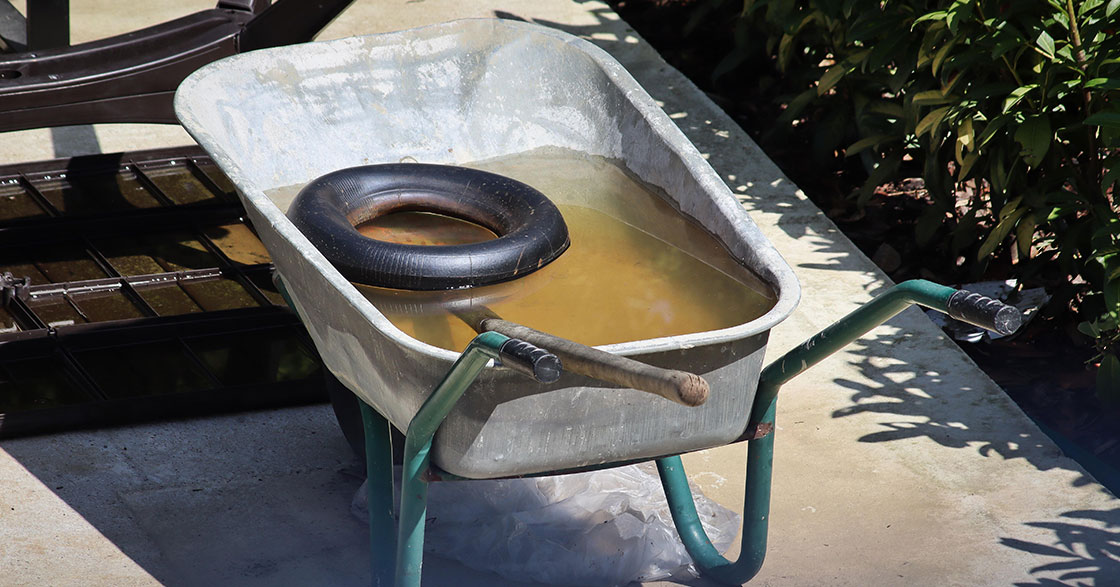
Lyttelton residents are being urged to check their properties for potential mosquito breeding habitats.
One of the roles of our Health Protection Officers* is to monitor the areas around Christchurch Airport and Lyttelton Port for any evidence of mosquitoes that may have entered the country that could be a threat to public health. Malaria, dengue fever, and Ross River fever are serious and sometimes deadly diseases that can be carried by blood sucking mosquitoes.
“If exotic mosquitoes were to sneak through, breed, and infect people, the results could be disastrous. The diseases they carry cause severe illness and can be fatal. With climate change potentially making our environment more comfortable for these mosquitoes, an outbreak could have significant cost implications for the health system, and eradication campaigns can cost millions,” says Dr Matt Reid, Medical Officer of Health for the National Public Health Service.
“A number of exotic mosquitoes have been found at New Zealand borders but have failed to get established because of the work of Health Protection Officers and Biosecurity staff, and we want to keep it that way.”
An important part of this work is regularly visiting Lyttelton Port and Christchurch International Airport to look for adult mosquitoes and larvae in traps positioned in and around these facilities. However, the team also identifies potential breeding grounds for mosquitoes.
“In Lyttelton, the residential area is very close to the Port. While we do not monitor the residential area, we want to raise awareness because the public can play a large role in removing places where mosquitoes could breed.
“We want to reduce the risk that exotic mosquitoes will breed successfully by asking all Lyttelton residents to check their property and get rid of stagnant water that may collect on properties. Mosquitoes struggle in the cold but with the recent warm weather, areas of stagnant and pooled water can be perfect breeding grounds.
“There are a number of things people can do to reduce potential mosquito breeding places, and stopping exotic mosquitoes getting a foothold in New Zealand. These include emptying water out of or getting rid of any buckets, tins, jars and other items like playground equipment that may hold water; regularly emptying and cleaning pot plant saucers; and turning boats, dinghies, and kayaks upside down to prevent water pooling.
The larvae and mosquitoes our team catch are sent to a Biosecurity New Zealand laboratory in Wellington to see if they are native or exotic. In addition to regular surveillance, the health protection officers are called on if Ministry of Primary Industry (MPI) staff find mosquitoes during their work at ports and airports.
Note to reporters:
*The National Public Health Service at Te Whatu Ora is responsible for improving, promoting and protecting the health of the community. Health Protection Officers are a crucial part of that work and they plan and implement activities that protect health and wellbeing in communities. Areas of specific focus are environmental health and communicable diseases. Environmental issues covered include bio-security and quarantine, recreational water quality, hazardous substances, and resource management issues. They also contribute to the management of sustainable environments.
Health Protection Officers also undertake surveillance and investigation of communicable disease. They prevent diseases spreading by food and water and also enforce effective waste disposal.
Further information on mosquito breeding can be found here: www.tewhatuora.govt.nz/our-health-system/environmental-health/pests-insects-bites-and-stings/mosquitoes/stop-mosquitoes-breeding
ENDS

